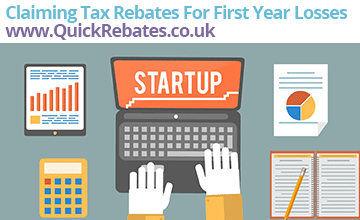What are the Corporation Tax Deadlines?
The deadlines for submitting your Company Tax return are relatively straight forward; likewise for paying the Corporation Tax due. The due date for submitting the Corporation Tax return is one year after the financial year end. The due date for the payment of Corporation Tax is nine months after the year end.
Companies are generally not tied to the typical fiscal period that end on 5th April, and a company can generally choose what year end they wish to have. It is quite common for companies to choose a year end of 31st March which helps the directors and accountants devise Corporation and Personal Tax strategies. For companies with a 31st March year end, the Corporation Tax is due 31st March the next year and the Company Tax is required to be settled by 31st December.
Likewise with most Self Assessment Tax Returns, penalties apply for late submission and payment, see below for more details.
How to File A Company Tax Return?
Unless you have prior experience with preparing accounts and Corporation Tax Returns, we would really not recommend you carry out this task yourself. Simply due to the vast complications that it brings.
Corporate Taxation is a completely different kettle of finish compared to traditional Self Assessment for sole traders, and particular attention needs to be drawn to directors transactions to avoid further personal Tax charges.
The actual submission of the Company Tax Return is done electronically with HMRC. Unless you have a reasonable excuse, the Corporation Tax Return must be filed online.
Filing Penalties for Late Company Tax Returns
The late filing penalties for Corporation Tax Returns can be quite severe and are detailed as follows:
- Under three months late: £100
- Three to six months late: an additional £100
- Six to 12 months late: HMRC will estimate your CT liability and will apply a 10% penalty
- Over 12 months late: A second 10%
As you can see, the penalties get progressively worse the later the returns are actually filed. On this basis it is essential the Company Tax Returns are completed on time.
What Other Annual Company Forms Are Due?
Managing a limited company doesn’t just mean filing a Company Tax Returns each year, more documents are required:
- Copies of financial statements for Companies House
- Annual return or Confirmation Statement for Companies House
- Full copes of financial statements for HM Revenue & Customs
- Employers returns if the company is paying wages or salaries
- P11D if benefits are being provided, such as a car or fuel benefit
- VAT returns if the company is registered for VAT
If there are any changes in shares, or directors, or even address, these should also be declared to relevant parties also. Not just this, but the documents must be prepared under strict rules and regulations set out by various accounting frameworks. Managing the administrative and company secretarial part of a limited company can be a job in itself.
Let QuickRebates oversee the whole company secretarial tasks so you can concentrate 100% on running your business.
When is the Corporation Tax Payment Due?
For limited companies, the rules concerning payment and submission of Tax returns is clear and simple:
- Submission of Tax return – one year after the financial period
- Payment of Tax due – nine months after the financial period
If it is your first year of running a company, it is most likely that you will have two Corporation Tax Returns to prepare and submit. One for twelve months (the maximum period for a Company Tax Return), and another Tax return for a certain number of days that takes the full accounting period to the end of the month.
Preparing Limited Company Accounts
The preparation and submission of limited company accounts should be carried out with reference to relevant UK frameworks, such as GAAP(Generally Accepted Accounting Principles) or IFRS (International Financial Reporting Standards). This should really be carried out by someone with previous experience as it can quickly become quite tedious and very easy to mistakes.
Given that HMRC and Companies House can issue penalties for incorrect returns and accounts, it pays to have qualified accountants and Tax experts on board to assist every step of the way.
Advantages and Disadvantages of a Limited Company
You have read above that the administration and accounts expertise required for maintaining a limited company can be quite extensive. But on the other side of the coin, running a trade through a limited company also has many other benefits:
- Generally lesser Tax and National Insurance is paid
- More protection to the owners, liabilities of the business are “limited”
- It can sound prestigious, to be the director and owner of a limited company
- Seeking finance can be easier by issuing shares
Enjoy the Tax benefits of running a limited company whilst QuickRebates oversee your company administration. Contact us today.

17 Actionable Tips for New Business Startups
17 Top Tips for New Businesses (Physical and Digital) Starting any business be it physical or digital, can be extremely[...]

Tax Relief for Opening Year Losses
Opening Year Loss Relief When starting a new business, it is incredibly common for Tax losses to arise in the[...]

Tax Refunds for Musicians
Musicians – It’s Time to Claim Back Your Tax! As a musician starting up in business, you could be entitled[...]








